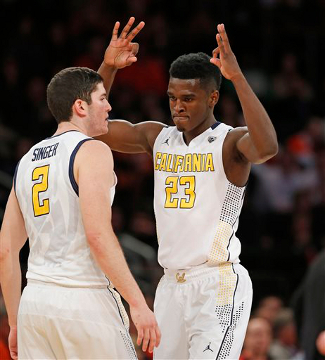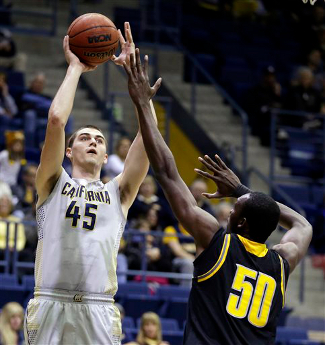California Golden Bears (3-0) vs. #10/10 Texas Longhorns (3-0)
Madison Square Garden | New York, NY | Tip: Approx. 6:30 P.M. CT | TV: ESPN2
Vegas: Texas -5.5 | KenPom: Texas, 68-64 (67%)
The Texas Longhorns overcame a slow start at Madison Square Garden on Thursday night to knock off Iowa and advance to the title game of the 2K Classic. Cal surprised Syracuse in the other semifinal, cruising to a comfortable win over the nation’s 23rd-ranked team. That sets up tonight’s unexpected championship matchup, as new Cal coach Cuonzo Martin and his underrated Golden Bears set their sights on another ranked foe.

Jabari Bird and Cal upset Syracuse last night
(Photo credit: Kim Willens/Associated Press) 
David Kravish will have his hands full with the UT big men
(Photo credit: Ben Margot/Associated Press) |










